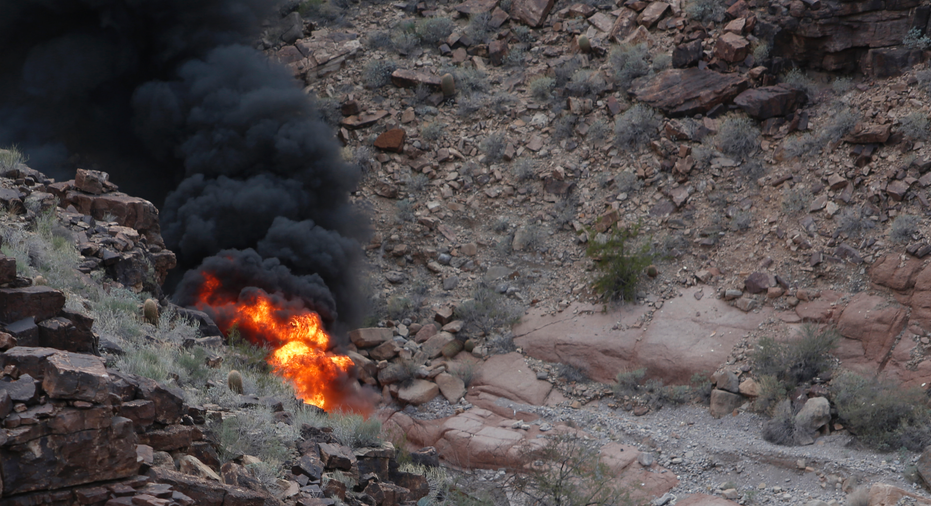Grand Canyon helicopter company changing tanks after crash

FLAGSTAFF, Ariz. – The company whose helicopter was involved in a deadly crash at the Grand Canyon is adding new fuel systems to its fleet that could help prevent or limit burn injuries.
Papillon Airways announced an agreement this week with StandardAero for 40 fuel tanks that expand, rather than rupture, on impact and that have self-sealing components. The systems generally give passengers and pilots more time to escape if they survive a hard landing or crash by keeping fuel from spreading and igniting, aviation experts say.
The National Transportation Safety Board repeatedly has urged the Federal Aviation Administration to require that all helicopters have the systems. The FAA is considering it. Right now, they're required only for helicopters newly certified after 1994, a requirement that aviation experts have called a major loophole.
Papillon declined comment Tuesday on what led to its decision.
Lon Halvorson, the company's owner, said in a news release that it's committed to lead the industry by retrofitting its air tour fleet with the crash-resistant systems developed by StandardAero and Robertson Fuel Systems. The first of the installations for the Airbus EC130 B4 and the AS350 B3 is scheduled for April.
The crash-resistant systems aren't standard on either of the aircraft, but the FAA certified retrofits last year, Airbus spokesman Bob Cox said. All single-engine helicopters Airbus has sold in the U.S. since 2016 include the systems, he said.
Kyle Hultquist, a spokesman for StandardAero, said the company anticipates more interest in the systems now that the retrofits have been certified.
Cox put the cost estimate at tens of thousands per helicopter and the time frame at two weeks per retrofit, depending on how Papillon has reconfigured the helicopters and the structure surrounding the fuel tanks.
Aviation attorney Gary C. Robb said the timing of Papillon's decision was no coincidence, coming a little more than two weeks after one of its helicopters crashed at the base of the Grand Canyon on the Hualapai reservation. Witnesses saw smoke billowing from the canyon and the aircraft in flames.
"It's well and good that they are making these retrofits, but it doesn't help the people who were horribly injured and those who were killed," Robb said.
Three of the British tourists on board were pronounced dead at the scene: veterinary receptionist Becky Dobson, 27; her boyfriend and car salesman Stuart Hill, 30; and Hill's brother, 32-year-old lawyer Jason Hill.
Two others in their group — 31-year-old Jonathan Udall and 29-year-old Ellie Milward Udall — were in critical condition and later died at a Las Vegas hospital. The Clark County coroner's office said Tuesday that the newlyweds died of complications from burn injuries.
Ellie Udall's family said in a statement that she died without regaining consciousness in the burn unit. The family asked for privacy and said it was "exceedingly grateful" for the rescue services in the Grand Canyon, volunteers and hospital staff.
A sixth passenger, 39-year-old Jennifer Barham, and the 42-year-old pilot, Scott Booth, remained in critical condition Tuesday.
The Britons were in Las Vegas to celebrate Stuart Hill's birthday.
An NTSB report released last week said the helicopter made at least two 360-degree turns before crashing but doesn't specify the cause. A full report won't be complete for more than a year.



















